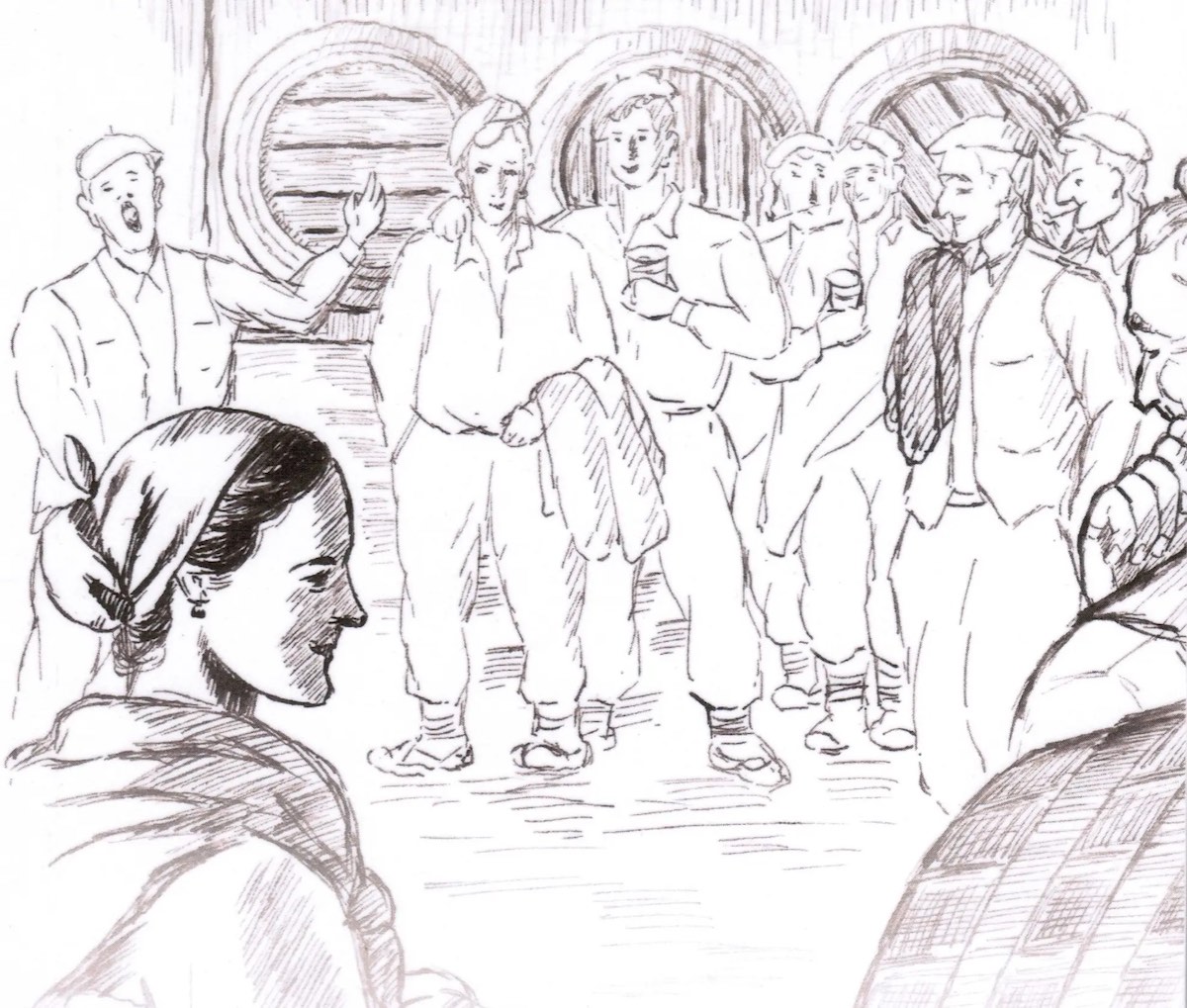There are articles on this blog in which the footprints of the Basques cross until they become a kind of small taste of what has been the intricate, complex, and “polygonal” history of the Basques in the world.
One of those paths led us to the WyoFile website thanks to an article by Michael Shay sharing with us the latest book published by David Romtvedt. It tells a story that delves into that complex and beautiful world of connections, of the love that the culture produces in many of those who approach it, and the commitment to defend it that arises in them.
It’s the story of the poems a Basque, the Bard Iparraguirre, which were written in the 19th century, at a very complicated time in the history of the Basques, and which have finally been translated into English, for the first time, in Reno, Nevada, collected in a book published by the Center for Basque Studies at the University of Nevada, Reno.
As Basque-American musician Dan Ansotegui aptly commented, “It’s incredible that a figure so central to the cultural and literary history of the Basques as Joxe Mari Iparragirre has never been published in English.”
Fortunately, this has finally been corrected thanks to the publishers at the Center for Basque Studies, and the work of Wyoming-based poet David Romtvedt, who has brought Iparaguirre’s oeuvre into English.
Looking at the life story of David Romtvedt, it would seem he was “sentenced” to a life in which “everything Basques” was bound to play an important role. He was born in Oregon, a state with an important Basque presence; he grew up in Arizona, another state marked, in the past and present, by the Basques; and spent his adult life in Wyoming, where that same important Basque presence goes so far as to use the Ikurriña as the base for the flag of one its counties, Johnson County, whose county seat, Buffalo, is where the poet and translator settled down.
There can be no doubt that his life’s path has given him many opportunities to come across Basque culture in the US. But that encounter went far further than just culture when he married Margo Brown, a member of a great Basque family from Big Horn Mountain. We’re sure we’re all aware of the power Basque women have to structure and organize, and strengthen the family. Many times we have written that Basque women are the true mortar of the Basque community, and it is they who are truly responsible for the preservation of Basque culture, and, most certainly, the survival of our nation.
And David Romtvedt got to live that firsthand. When we read this news and his story, we recalled how Pat Bieter, the German Catholic from Milwaukee, became a pillar of the Basque community and staunch defender of Basque culture in Boise.
To fully grasp what we’re saying, we need only mention that David Romtvedt learned Basque, soaked up the culture of his wife’s nation, and, without a doubt, became a part of that community in his own right. He is no longer a “friend of the Basques,” he himself is a Basque.
Just take a look at his books, or check out his YouTube channel, where we can even hear him sing in Basque!
This globetrotting poet from the western US, already two decades into the 21st century, has translated into English the poetry of a Basque Bardo, who was also a globetrotter, and wrote poetry about his country and culture in gloomy times for the Basques.
Because we don’t think that the label that can be given to Iparraguirre is that of “monarchical.” He was a defender of Basque Freedoms, freedoms which went far beyond the standards of the time. He supported a pretender to the throne because that person promised to respect those freedoms, the Fueros. And that pretender to the crown lost, not that it mattered greatly, because the other pretender, Isabel II, did get the crown. What does matter is that Isabel’s victory marked the beginning of the abolition of those ancient Basque freedoms.
Iparraguirre lived at a time when the Basques still didn’t fully, or even partially, understand what they could expect from that monarchy, regardless of who sat on the throne, because he died just a few years before two brothers, the Arana brothers, understood that the future of the Basques meant they needed to establish their own sovereign nation. It was Sabino Arana who laid the groundwork for the movement for Basque sovereignty, defining a Basque Country that would be the Homeland of the Basques. It would be a sovereign country that should be a confederal republic that would join all the Basque territories, until then administered by Spain and France, as free and equal brothers. Iparraguirre never got to see or live that, but in his love for his country and his suffering for the freedom that had been lost, the seed was planted.
And all that goes to explain why we’re not surprised Iparraguirre ended up in the barricades of Paris in the 1848 French Revolution: he was not fighting for a monarchy, but rather for the rights of his people. And that made him sensitive to the rights of all peoples.
Finally, what we loved, a lot, were the last two points the Wyoming poet himself made to the otherwise magnificent article by Michael Shay. He explained that Hendaye, which the journalist calls France, is also part of our country, and reminds him that the bombing of Guernica was in Guernica, not Madr
It’s a great article brought to us by WyoFile as is the work of David Romtvedt and the Center for Basque Studies at the University of Nevada, Reno.
WyoFile – 30/4/2021 – USA
Exploring the roots of Basque poetry from a Wyoming perspective
The tree of Gernika is no metaphor but a real tree – or series of trees – grown over the centuries in the town of Gernika in northern Spain, known to most of the world as Guernica. The tree represents the centuries-old traditions of the Basques. You may know Guernica from Pablo Picasso’s haunting 1937 painting of the same name. Picasso’s inspiration was the fascist terror-bombing of Madrid during the Spanish Civil War.
(Follow) (Automatic translation)
Website of David Romtvedt (Automatic translation)
Last Updated on Jul 20, 2021 by About Basque Country





